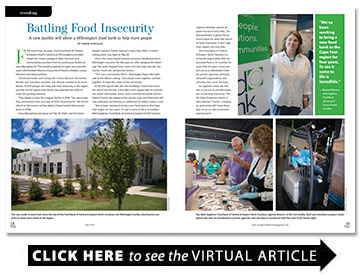Battling Food Insecurity
A new facility will allow a Wilmington food bank to help more people
BY Simon Gonzalez
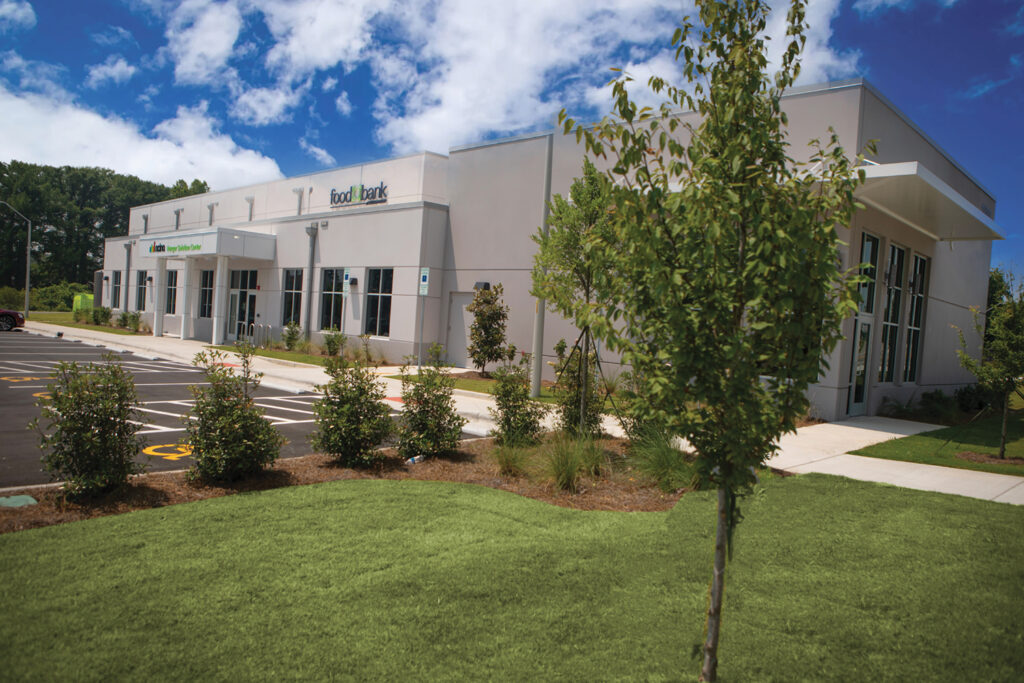
For more than 30 years, the Food Bank of Central & Eastern North Carolina at Wilmington provided meals for hungry people in New Hanover and surrounding counties from its warehouse facility at 1314 Marstellar St. The building opened in 1990, and over the years distributed millions of pounds of food to shelters, soup kitchens and food pantries.
Functional needs were being met in New Hanover, Brunswick, Pender and Columbus counties, but officials wanted to do more. Nearly 75,000 people are living with food insecurity in the region, and the 12,000 square foot facility was deemed too small to meet the growing demand.
They began to plan for a bigger facility in 2018. Two years later, they purchased a five-acre plot at 1000 Greenfield St., the former site of an IGA known as Everybody’s Supermarket that burned down in 2018.
Groundbreaking took place on Feb. 24, 2021, and the nCino Hunger Solution Center opened in early May 2023. A ribbon-cutting event was held on May 22.
nCino, the cloud-based banking company headquartered in Wilmington, became the title sponsor after pledging $1 million over five years. Support also came from the state, the city, the county, Food Lion, and private donors.
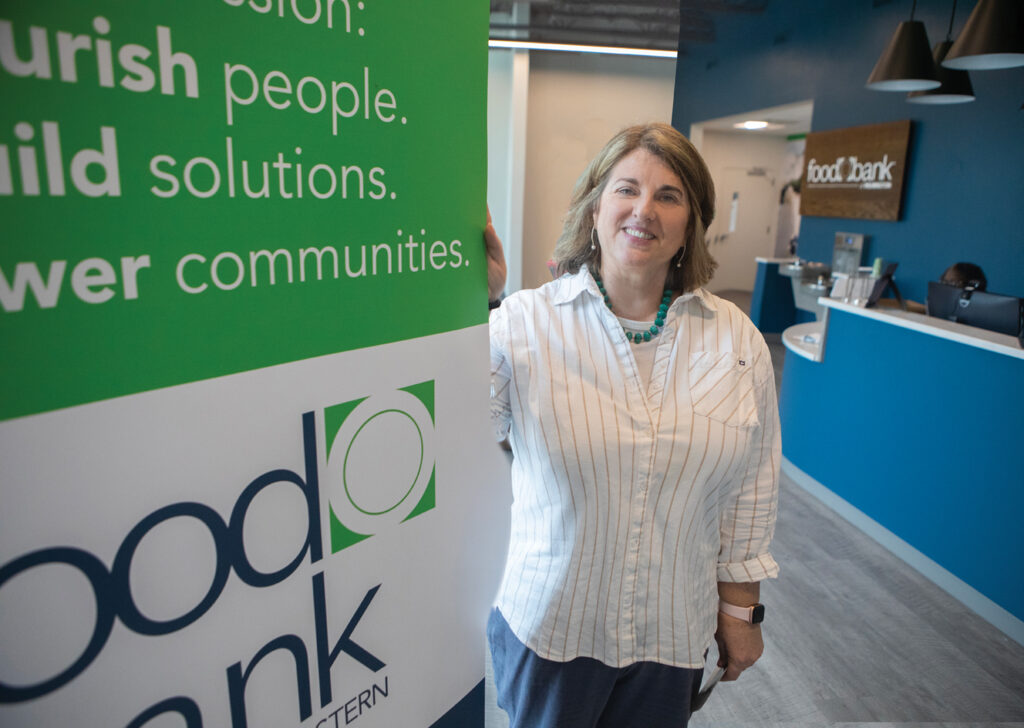
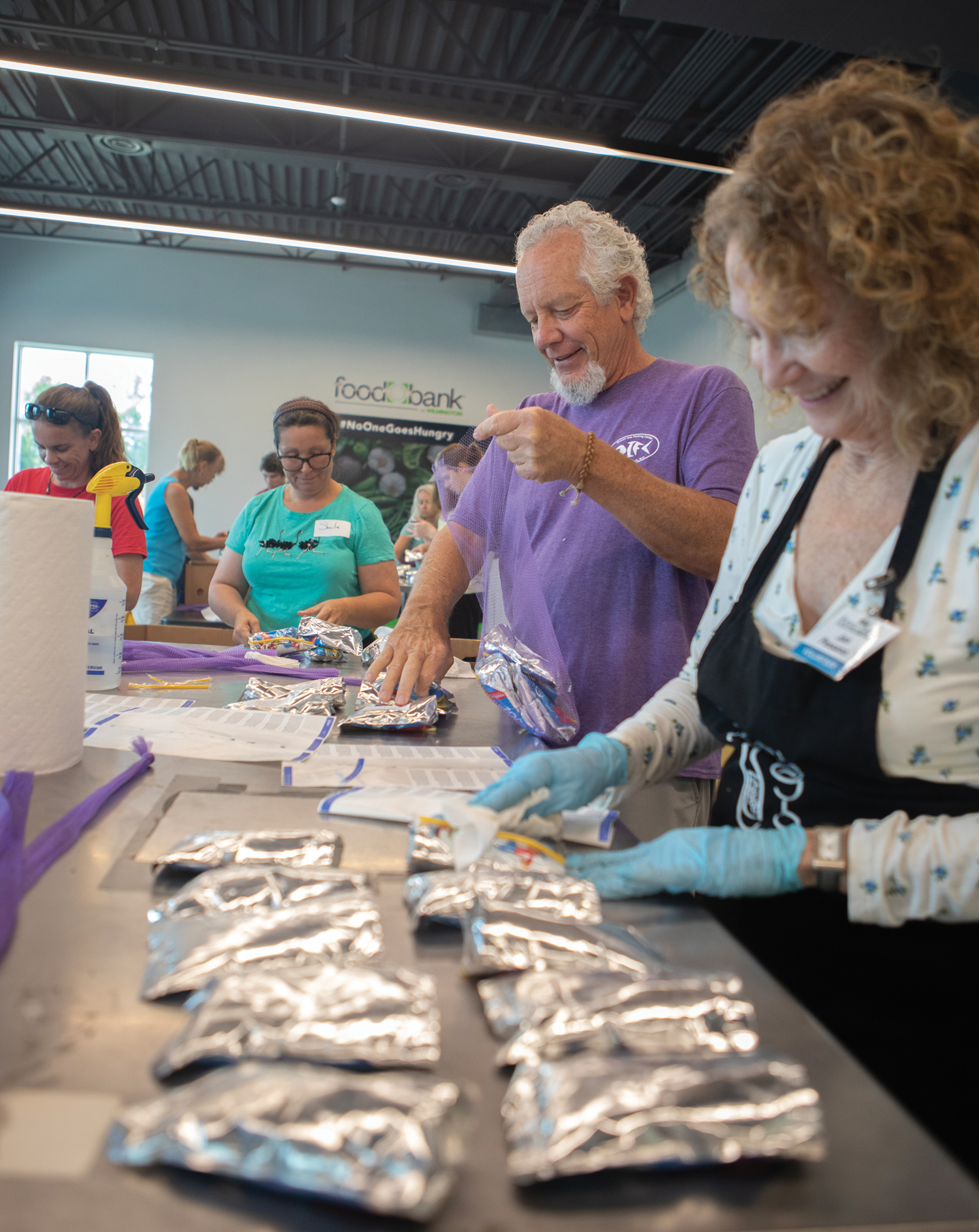
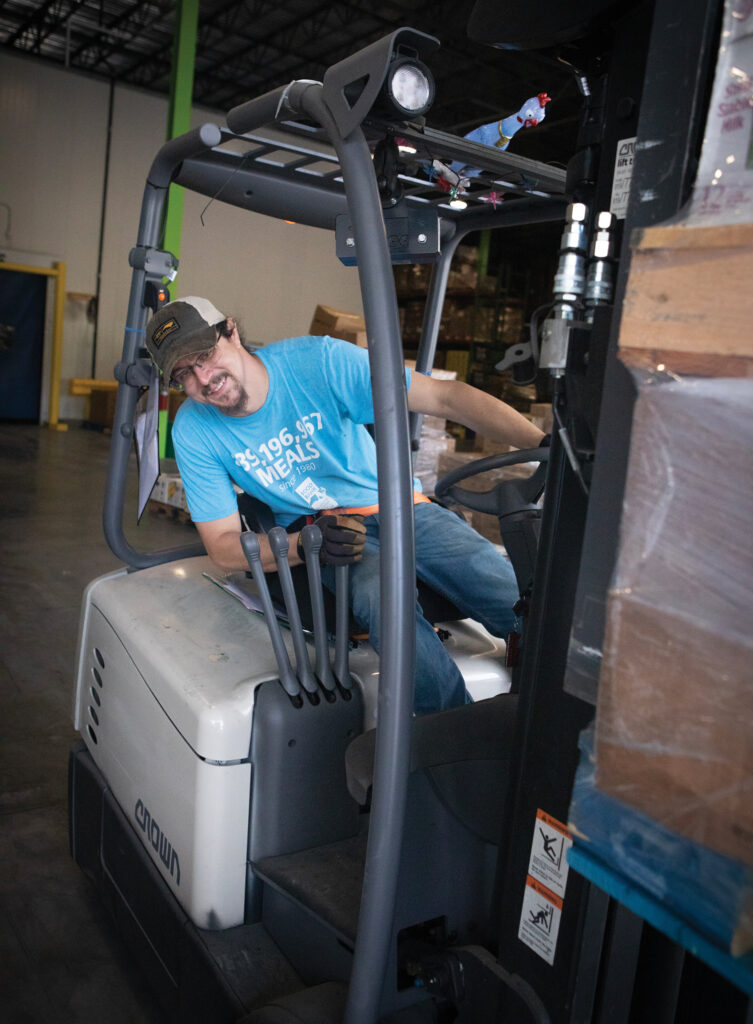
“This was a community effort,” Wilmington Mayor Bill Saffo said at the ribbon-cutting. “Everybody came together, worked together, to build this state-of-the-art facility.”
At 35,000 square feet, the new building is more than twice the size of the old one. It includes 4,500 square feet of commercial cooler and freezer space, and a commercial-grade kitchen. Duplin County was added to the service area, and food bank officials anticipate distributing an additional 3.5 million meals a year.
The mission is not just to provide meals but to end food insecurity. The NC State Extension Center in New Hanover County is helping by partnering with Feast Down East on an on-site community learning farm.
“We’ve been working to bring a new food bank to the Cape Fear region for four years. To see it come to life is incredible,” Beth Gaglione, Food Bank of Central & Eastern North Carolina regional director, said at an open house in early May. “It’s extraordinary. It gives me so much hope for what the future of food insecurity in the Cape Fear region will look like.”
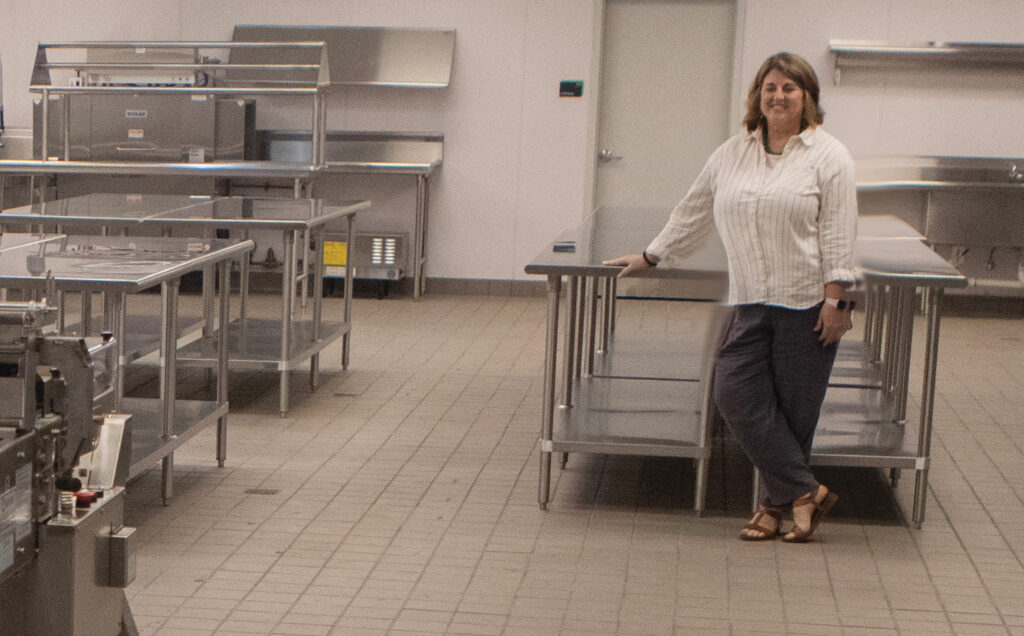
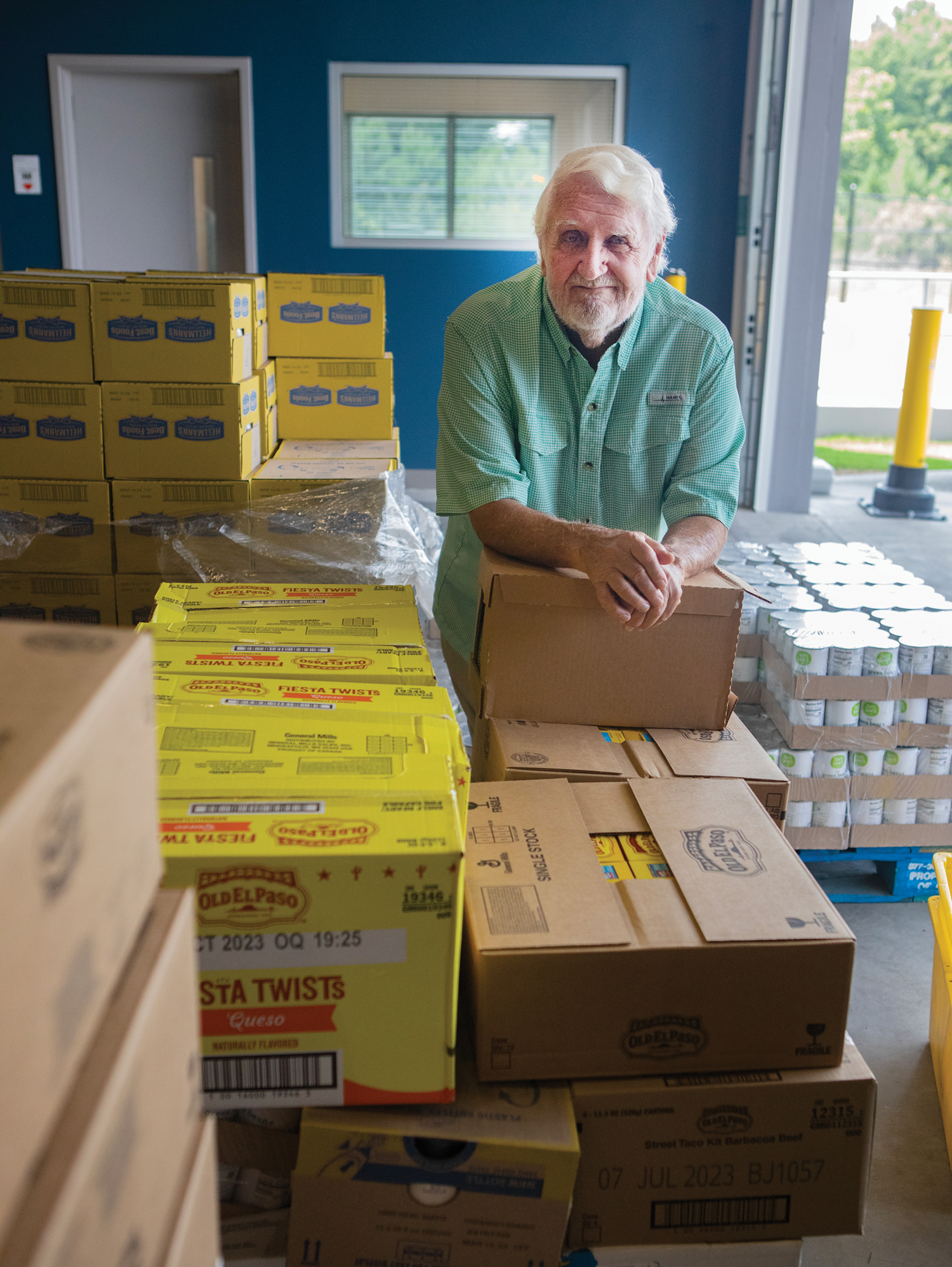
The Food Bank of Central & Eastern North Carolina is a nonprofit organization that has provided food in 34 counties for more than 40 years. Local centers serve as distribution hubs for partner agencies, primarily nonprofit organizations and churches that serve the food.
As Gaglione notes, the mission is not just to provide meals but to end food insecurity. The NC State Extension Center in New Hanover County is helping by partnering with Feast Down East on an on-site community learning farm.
“My goal is to have some really innovative education going on in this highly underserved area, and teach people methods of food production,” says Lloyd Singleton, County Extension director. “We want to do mushroom production and microgreens. We want to have hydroponic towers in a greenhouse. We want to do things that are replicable on a small scale in an urban setting. It’s not just a community garden but urban agriculture.”
Site plans and grant applications are under way, and the learning farm could become a reality in the fall of 2024.
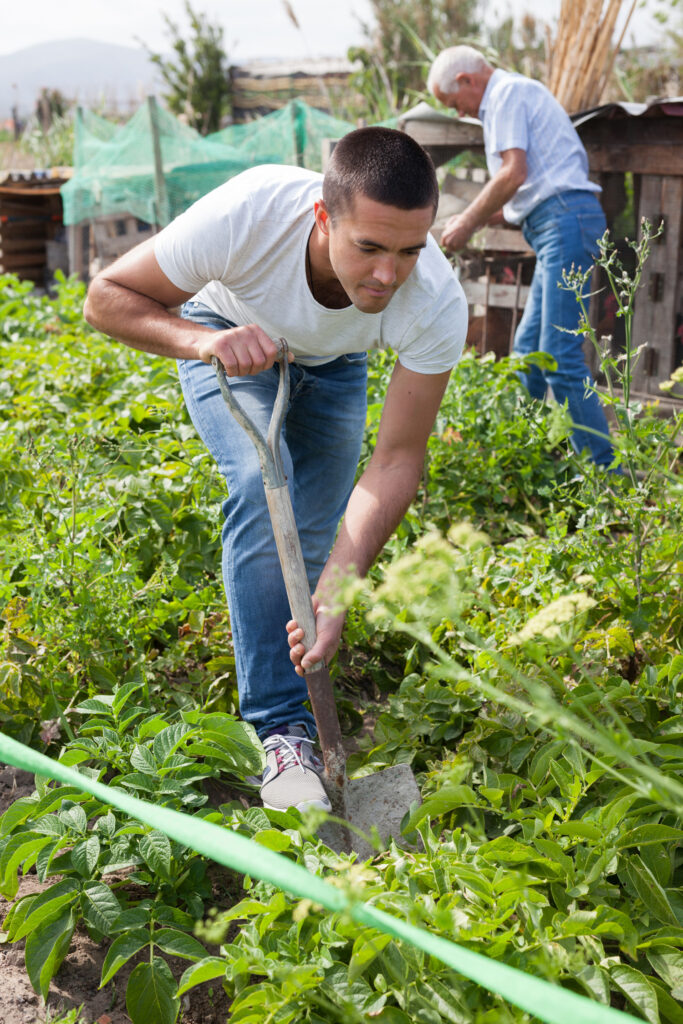

NC State Extension also partnered with the food bank to ensure stormwater from the parking lot does not run off into nearby Greenfield Lake. Large water storage tanks are onsite.
“We have a cistern system, a rainwater catchment system, that is hooked up to their landscape irrigation,” Singleton says. “They also have a retention pond. Their stormwater methods are topnotch. There’s not going to be a drop of water running off that parking lot into Greenfield Lake. They’re catching it all.”
